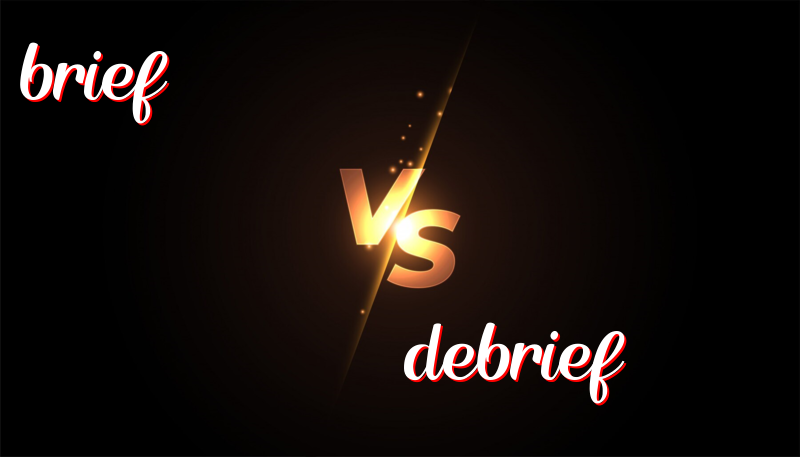Understanding Brief and Debrief: A Simple Guide
Brief vs. Debrief: What’s the Difference?
History of the Words
The word “brief” came from a Latin word “brevis,” meaning short. It has roots in old English and French. It means giving a small amount of information.
The word “debrief” comes from adding the word “de-” to “brief.” “De-” means “to remove” or “to reverse.” It first appeared in the 1940s. Debrief means to talk about what happened after an event and learn from it.
How to Use the Words
Brief
When you brief someone, you give them important information quickly. You tell them what they need to know before they do something.
- The teacher will brief the class before the test.
- My boss will brief me on the meeting’s agenda.
- The coach briefed the team on the new play.
- We brief the visitors about safety rules.
- She was brief in her instructions to the kids.
Debrief
When you debrief, you discuss what happened after an event. You talk about what went well and what didn’t.
- After the flight, the pilots debriefed to discuss the journey.
- We debrief after every project to improve.
- The army debriefed the soldiers after the operation.
- The team will debrief after the game to talk about their performance.
- I debrief myself at the end of the day about what I learned.
Trick to Remember the Difference
Think of “brief” as starting something by giving information, like a short talk. Think of “debrief” as finishing something by discussing what happened, like a review.
Summary
Use “brief” to talk about telling someone important things quickly at the start. Use “debrief” when you talk after an event to understand and learn from it. Remember, “brief” starts, “debrief” ends.

Leave a Reply
You must be logged in to post a comment.